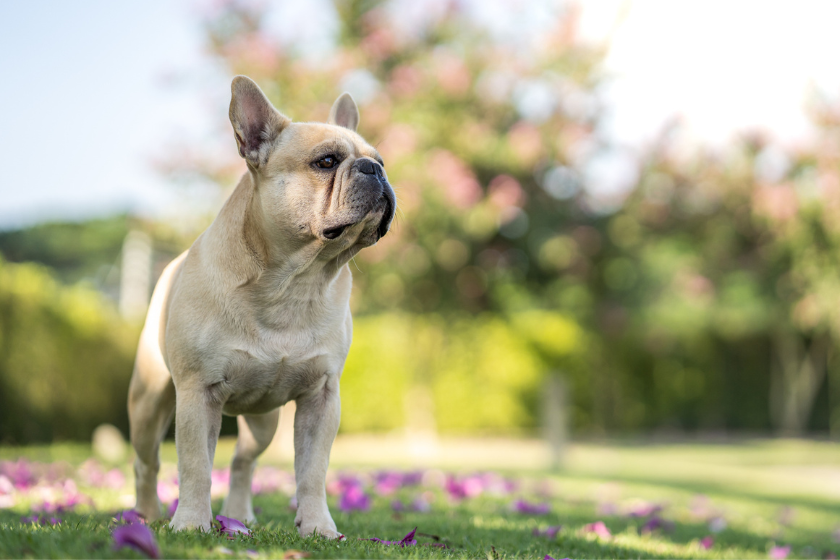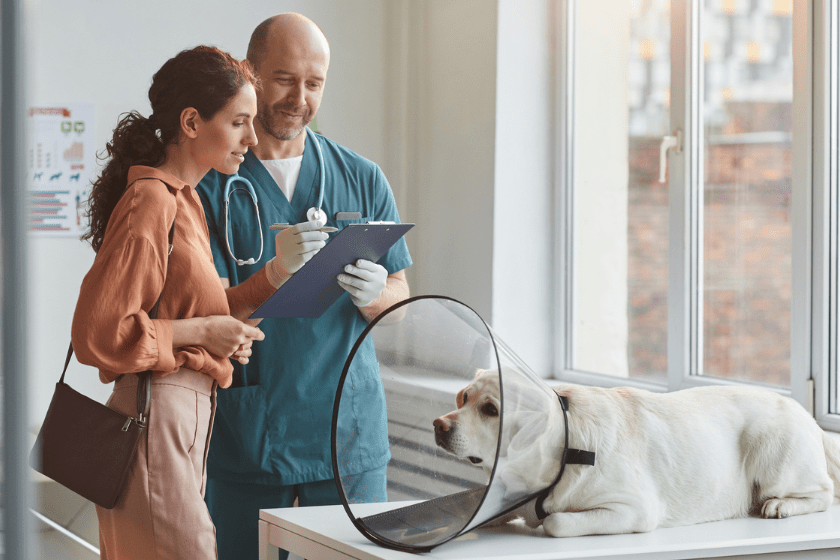We've all gotten sick at some point in our lives, and pets are no exception. However, unlike humans, dogs can't seek medical treatment for themselves or tell anyone what's wrong. This is why we've developed bowls that help with digestive issues, at-home remedies for diarrhea, and life-saving vaccinations to ensure our pups stay healthy. But what happens when a dog gets a case of the sniffles? Respiratory congestion can occur for a variety of reasons, and when it comes to congestion in dogs, identifying the root cause of their discomfort is the key to getting them back on the right paw.
At its core, respiratory congestion in dogs is usually attributed to some type of fluid in the lungs. Treatment depends on the diagnosis, so a trip to see your veterinarian is important to rule out potentially serious problems. Managing your pet's pain is another important step on the road to recovery. Here, we'll look at causes of dog congestion, potential problems a vet may diagnose, and treatment options to consider.
Causes of Dog Congestion

Nasal and lung congestion in dogs can stem from a number of causes. Oftentimes it is the result of an allergy, and there are two different types of allergies owners should watch out for. Environmental allergies are year-round and can include food allergies, fleas, and other things from one's surroundings. Seasonal allergies in dogs can also lead to a stuffy nose. These allergies pop up at different times of the year, and may be caused by pollen, dust, and seasonal plants. Dogs can also show symptoms of congestion if they inhale something that irritates the lungs, like liquid or smoke.
Congestion can also be caused by infections. According to Dr. Sara Ochoa, a board-certified veterinarian and consultant for doglab.com, one of the ways dogs can experience congestion is if there's "a bacterial infection in their upper airways." Other types of infection include fungal, or viral infections. A viral upper respiratory infection is also known as the common cold or flu.
Kennel cough is another common cause of lung irritation, though you may know this infection more commonly as bronchitis in dogs. According to the American Kennel Club, it is highly contagious and can be contracted through close contact with other canines in places like dog parks and daycares. Fortunately, kennel cough can be prevented with the widely available bordetella vaccine.
One of the more serious conditions that can cause congestion in dogs is congestive heart failure, which can lead fluid to build up in the lungs. If you suspect your dog has this condition, they should be taken to the nearest animal clinic as they will need to be diagnosed by a veterinarian.
Symptoms of Respiratory Congestion in Dogs

There are a wide range of symptoms of congestion that a dog may exhibit. It's important to take note of any unusual behaviors, however small, to help your vet identify the problem.
Symptoms include:
- Sneezing and nasal discharge: Like humans, dogs may sneeze or experience a runny nose when sick. Nasal discharge that is thick and yellow or green in color is an indication they could be suffering from an infection.
- Watery eyes: A viral infection can cause a dog's tear ducts to become inflamed or blocked, which will lead their eyes to water.
- Fever: A dog's normal body temperature ranges between 101 to 102 degrees Fahrenheit, so anything higher is cause for concern.
- Difficulty breathing: Congestion can cause a lack of oxygen intake, so be aware of irregular gasping. In severe cases, a blue-gray tint on a dog's lips, gums, or tongue may be present.
- Coughing: Deep, hacking sounds may gets worse at night or after exercise. More severe, wet-sounding coughs may be a sign of pneumonia.
- Lethargy and loss of appetite: Be aware of your dog's mannerisms and note changes around normal feeding times.
Symptoms of Sinus Inflammation

Congestion in dogs can also result in nose and sinus inflammation. Rhinitis is an inflammation of the mucous membranes inside your dog's nose, and can often present with sinusitis, a condition in which your dog's sinus linings become inflamed. It's easy for inflammation to spread out of control when animals are sick, so sinusitis can be very common after a respiratory infection.
These two conditions are often caused by a viral infection, like canine parainfluenza or canine distemper. Your dog can also develop nose and sinus inflammation because of an allergy to dust, pollen, or even mold. Dogs who inhale smoke or get a foreign object stuck in their nasal passages can also experience inflammation. Parasites, trauma, and chronic diseases can cause long-term inflammation in dogs, and require a prescribed treatment regiment.
If your dog's nose or sinuses are inflamed, you may notice them sneezing, snoring, or breathing with their mouth open, or having breathing problems when at rest. Unnatural nasal discharge is a pretty clear indicator of an underlying issue as well, so don't ignore a basic runny nose. Sometimes dogs will reverse sneeze, where they inhale shortly and quickly, trying to clear their airways.
How to Treat Congestion in Dogs

Mild cases of congestion can be treated at home with over-the-counter drugs like Benadryl. However, it's still important to consult with a veterinarian first to understand how much Benadryl to give a dog. Ochoa advises that "1 mg per pound" is usually standard, meaning for a 20-pound dog, 20 mg of Benadryl should be issued.
Other at-home remedies include using a humidifier and allowing your dog to breathe in warm steam from a slower. Moisture from humidifiers and warm air can reduce congestion by breaking up mucus in the nasal passages, lungs, and throat. A dog who is congested may also feel dehydrated, so it's important to encourage them to hydrate and drink lots of liquids to replenish lost fluids.
Dogs should be taken in for professional treatment if they are exhibiting more serious symptoms such as not eating or drinking, acting lethargic, or showing severe signs of congestion in the lungs. When you arrive, your vet may first take an X-ray of your dog's lungs to check for any congestion. Treatment will vary depending on what your dog is diagnosed with. If your dog's congestion or nose and sinus issues are the result of inflammation, your vet will prescribe an antibiotic to combat the problem. If the congestion is a result of a seasonal problem or minor irritation, the allergy or irritant in question will be identified through testing or elimination and addressed. If your dog is congested because of something serious like congestive heart failure, your vet will administer diuretics to help remove fluid from the lungs.
Ever had to bring your dog to the veterinarian for congestion or what appeared to be a cold? Share your tips and advice at our Wide Open Pets Facebook.




